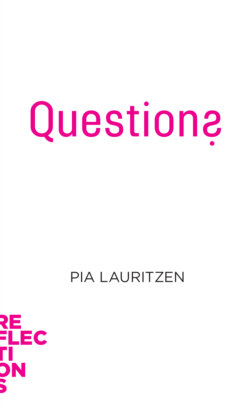Читать книгу Questions - Pia Lauritzen - Страница 7
На сайте Литреса книга снята с продажи.
QUESTION — QUEST — TRUTH
ОглавлениеHeidegger was by no means the first to give the question a central role in his understanding of what it means to be human. Nor was he the last. In Western thought and civilisation, it is an age-old assumption that asking questions is inextricably linked to being and developing as a human being.
This is why questions are the staple ingredient in all teaching, coaching and therapy. It is also why scientists across disciplines agree that questions are the key to becoming smarter. Although only a handful of researchers speak and write about questions themselves, they will unanimously confirm – if you ask them directly – that it is impossible to develop new thoughts and ideas without asking questions. Questions are the stuff thinking and development are made of; and it’s thanks to questions that we have access to ‘the good life’ and to ‘true knowledge’.
That, at least, is the assumption philosophers have gone by ever since Plato laid the groundwork for Western thought in ancient Greece. Most of Plato’s works are constructed as dialogues between Socrates and various interlocutors. They are transcripts, of a sort, of conversations where Socrates uses leading questions and answers to guide his followers to insight.
According to Plato, the things we experience with our senses are phenomena, and he understands phenomena in the light of ideas. For Plato, a horse is not a horse because it has four legs and a tail – as so many animals have – but because it participates in the idea of the horse. Like all other ideas, the idea of the horse is part of the world of ideas, which differs from the world of phenomena by being inaccessible to sensory perception. Instead, we can come to cognitively know, realise and recognise the world of ideas, and we do so by means of questions. In the dialogue Phaedo, Plato has one of the characters recapitulate Socrates’ point as follows:
When people are questioned, if you put the questions well, they answer correctly of themselves about everything.
It is the idea of the human being to know the good, the beautiful and the true, yet no human being is pure idea. Like the horse, we are also phenomena that can be seen, tasted, smelled, heard and touched. We must accordingly rely on questions in order to recollect the world of ideas from which we, and all other phenomena, derive our reality.
In other words, Plato constructs all his dialogues around Socrates’ questions not because he is interested in questions as such, but because he is interested in the answers that may be obtained by asking in the right manner.
For Plato, it is the answer – understood as our ability to recollect the good, the beautiful and the true – that is essential. Although we cannot recollect without seeking, and although we cannot seek without questioning, questions are always merely a means to achieve an end. A means that dissipates as soon as the goal (here: knowledge or realisation) has been achieved. This has led some to think that Plato regards questions as the opposite of knowledge: as a human phenomenon that is to be transcended.
So we have Heidegger on one side, Plato on the other. Heidegger regards questioning as an essential characteristic of being human, one we cannot call into question because we are ‘always already’ questioning. Plato regards questions as a human phenomenon we ought not to spend our time asking about, inasmuch as, like all other phenomena, it draws attention from what truly matters: the idea of the good human being.
Heidegger and Plato thus agree that what is essential to the question is something other than the question itself. It is, instead, the human being – understood as a mode of being or an idea, respectively. Despite their very different approaches to questions, and use of them, Plato and Heidegger agree that the question of the question must be understood in the light of what it means to be human.
